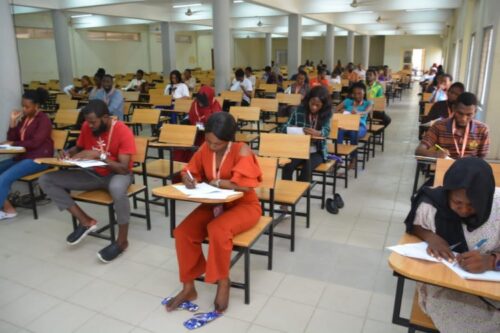
The expulsion of a University of Abuja student for speaking out against a tuition hike has reignited discussions about digital rights and freedom of expression in Nigeria.Student protests have long been a feature of Nigerian universities, with students often mobilizing against policies they deem unfair. One such case unfolded recently when Cyprian Igwe, a sociology student and student union executive, voiced his opposition to a 50% tuition fee hike in a private WhatsApp group. His comments were deemed “inciteful” by university authorities, leading to his immediate expulsion.The hike raised tuition fees from ₦47,300 to ₦89,000, sparking concerns about affordability for low- and middle-income families. Cyprian’s expulsion letter claimed his actions threatened the university’s peace and violated his matriculation oath. However, public outrage following his social media posts eventually led to his reinstatement.
A Broader Conversation on Digital Rights
Cyprian’s case has highlighted concerns about privacy and digital rights. Observers question how university authorities accessed a private group chat, bringing issues of surveillance to the forefront. Activists and legal experts emphasize that freedom of expression extends to online spaces and must be protected.Digital rights advocates have long championed unrestricted access to the internet, privacy protections, and the freedom to express dissent online. However, these rights are frequently under threat across Africa. For instance, Nigeria faced international criticism after its year-long Twitter ban, and in Senegal, internet blackouts were imposed during protests earlier this year.
The Double-Edged Sword of Online Activism
While platforms like Twitter and WhatsApp empower individuals to hold authorities accountable, they also expose users to risks, including surveillance and harassment. Activists in Nigeria report increased scrutiny at airports and other checkpoints, often facing unwarranted questioning or detention.Increased government surveillance has raised concerns about the misuse of personal data. Reports indicate that law enforcement agencies in some African nations can access private communications without warrants, potentially targeting journalists, activists, and critics.
Steps Toward a Safer Digital Future
The growing awareness of digital rights violations calls for collaborative action. Governments, civil society, and private organizations must work together to establish stronger data protection laws and safeguard freedom of expression. Advocacy for judicial oversight and regulatory reforms is also crucial in ensuring the online safety and privacy of citizens.Ultimately, the debate sparked by Cyprian’s expulsion underscores the importance of protecting digital rights in an increasingly connected world.



